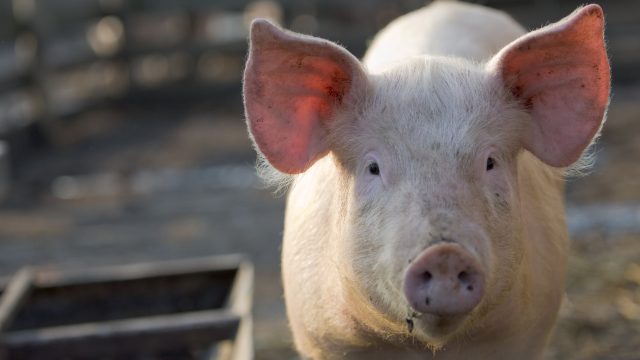
Highest Court in Washington Affirms Appeals Court Ruling Against Sentencing Dog to be Killed
The court confirms ALDF’s amicus position that a dog should not be euthanized due to his owner’s violation of a local animal ordinance
Contact: media@aldf.org
OLYMPIA, Wash. — The Washington Supreme Court affirmed an appeals court ruling that a dog named Thor, who had previously been deemed dangerous, should not be euthanized due to his owner’s violation of the local dangerous dog ordinance. The decision in the case, State v. Richards, followed an amicus brief submitted by the Animal Legal Defense Fund (ALDF) in May 2024, which argued against the lower court’s sentencing, focusing on how the sentence sought to evade due process protections while also attempting to have Thor killed in a case where he had done nothing wrongful.
The case went to the Washington Supreme Court to determine whether the district court acted properly in presenting this choice to Richards — to spend nearly a year in jail or surrender Thor to be killed.
After being given the legal label of “dangerous” following a confrontation with a neighbor’s dog, Thor was supposed to be restrained at all times on a leash or in a fenced yard. However, Thor’s guardian, Jennifer Richards, left him unattended on their porch — though not contained, Thor never left that location — prompting a neighbor to call law enforcement who later referred the case to the local prosecutor. The lower court convicted Richards of irresponsibly maintaining a dangerous dog, a misdemeanor. At sentencing, Thor’s owner was ordered to receive jail time but was given an alternative to surrender Thor to be euthanized.
“The trial court’s sentence circumvented the due process protections embodied in forfeiture law,” said ALDF Managing Attorney David B. Rosengard. “Thankfully, not only did the Supreme Court uphold a decision that will keep Thor from immediate harm, but it also went further by framing him as a ‘someone’ with his own interests and inherent value, separate from those of his owner. In this decision the court agreed with the legal interpretation argued by ALDF and the defendant’s attorney and we are grateful that Thor will be able to carry on with his life.”
The Washington Supreme Court’s decision explained that “The concept that Thor, a blameless animal, should be killed as punishment for Richards’s failure to properly confine him deserves some recognition as more than a mere ‘creative sentencing condition.’ In contrast to a probationary ban on animal possession, a sentence requiring the death of a specific animal does not have a reasonable connection to the offense.”
The amicus brief submitted by ALDF additionally asserted that sentences must reasonably tend to make reparations for the crime or prevent criminality. In this case, as Thor had not harmed anyone, restitution was irrelevant. And, critically, because killing Thor (or any other individual animal) does not reasonably prevent Richards (or any other animal owner) from violating local animal ownership laws in the future, the trial court’s attempt to seek Thor’s death was not an valid sentence.
Washington ranks No. 8 in ALDF’s U.S. State Animal Protection Laws Ranking Report, which ranks the animal protection laws of all 50 states.
Richards was represented by Bellingham animal lawyer Adam Karp.
Sign Up!
Join the Animal Legal Defense Fund's email list to stay up to date on lawsuits, legislation, and regulations affecting animals.
How We Work
Related
-
Court Rules Texas Food Label Censorship Law is Unconstitutional
The law imposed unclear and vague standards on plant-based meat producers that violate the First AmendmentJanuary 29, 2026 Press Release -
State Animal Protection Laws Ranked: Oregon is #1, North Dakota #50
20th edition of ALDF state and territory ranking report highlights major advancements & trends in animal protection across the U.S.January 27, 2026 News -
Over 30 Organizations Urge USDA to Limit Federal Support for Manure Digesters
Hundreds of millions of dollars intended to cut energy costs have been funneled to costly manure digesters, benefitting the largest factory farmsJanuary 15, 2026 News




